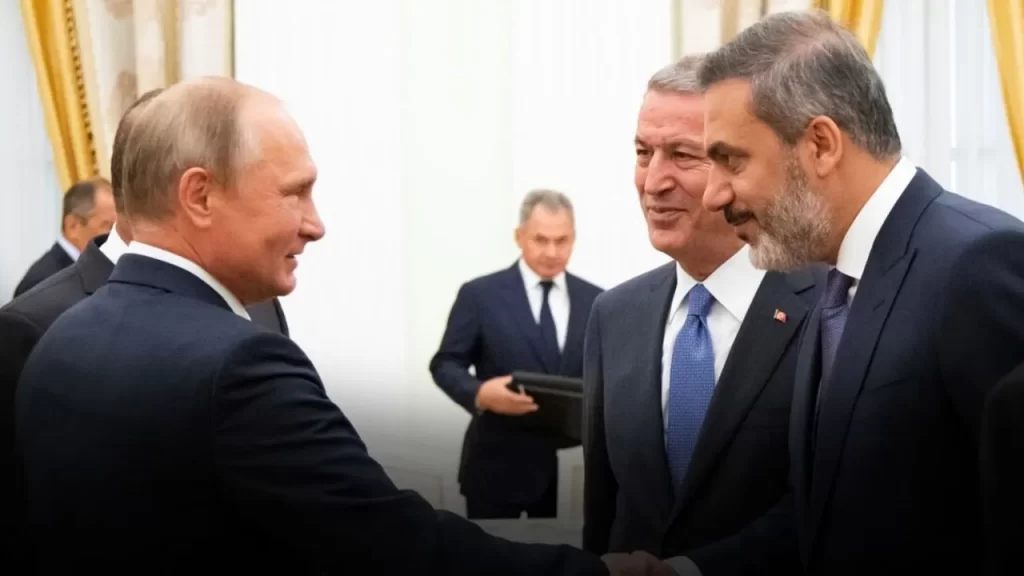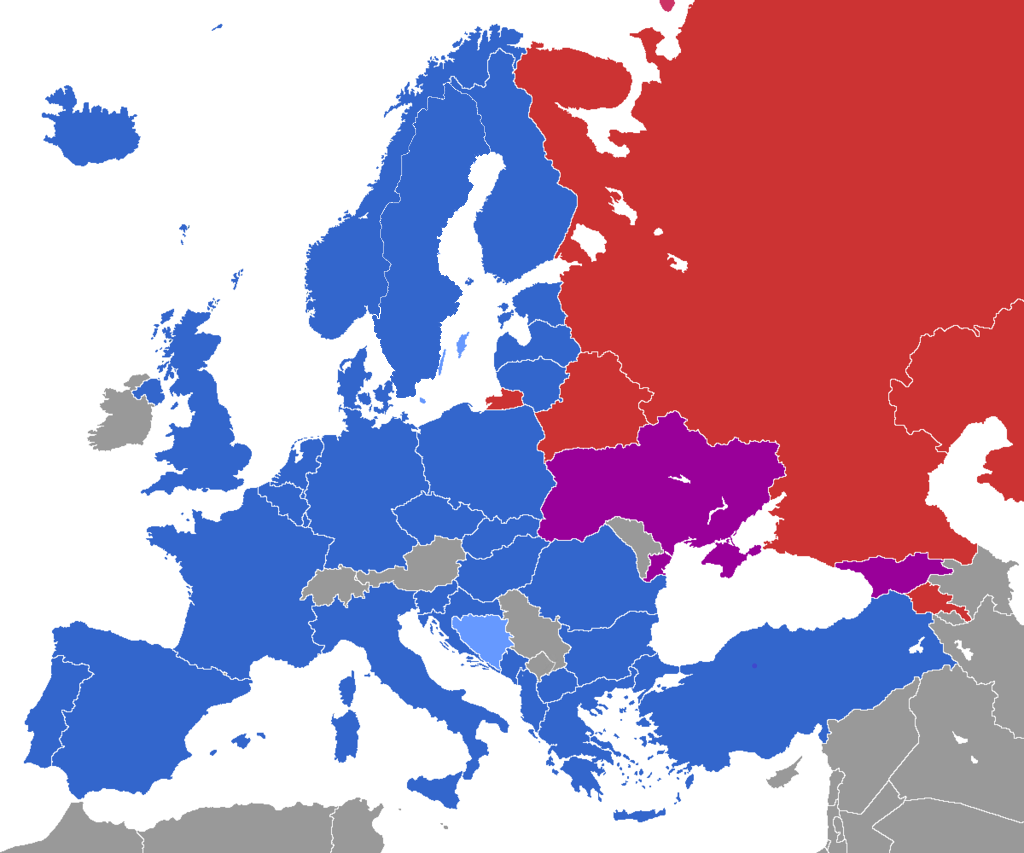FM Fidan’s Warning
Foreign Minister Hakan Fidan has warned that the world must take the threat of regional crises and nuclear war seriously. Highlighting Turkey’s diplomatic priority of ensuring regional and global peace, Fidan stated, “I believe this scenario, this threat, must be taken seriously.” He made these remarks in response to a question about whether the world is anticipating a larger war amidst the Russia-Ukraine conflict, Israel’s oppression in Gaza, and recent attacks on Lebanon.

“Talks Continue for Russia-Ukraine War”
Foreign Minister Hakan Fidan noted that discussions with all parties regarding the Russia-Ukraine war are ongoing, with continued contact with President Vladimir Putin. Fidan recently visited Moscow, holding meetings with Putin and several other Russian officials. In a live broadcast, he had the opportunity to discuss in detail the messages President Erdoğan conveyed to Putin.
Emphasizing the potential significant costs of the war for both the region and the world, Fidan noted the risks of the conflict spreading and the threat of nuclear weapons. He highlighted the strong cooperation between Turkey and Russia on issues such as Syria, bilateral trade, and energy. “We told our counterparts that peace is fundamental regarding Ukraine and that Russia needs to set its stance,” Fidan said. He added that Putin outlined the steps to end the war and announced them two days after their discussions.
Nuclear Weapon Threat and Regional Tensions
Fidan underscored that as long as the war continues, the threat of nuclear weapons remains, which could also trigger other conflicts in the region. Turkey, given its position, faces threats from the Russia-Ukraine war in the Black Sea basin and the Israeli threat in the eastern Mediterranean.
“Turkish diplomacy prioritizes efforts to end wars, and our president is committed to this,” Fidan said, emphasizing Turkey’s dedication to peace and its significant role in ensuring both regional and global peace. He reiterated the importance of diplomacy in this regard.
Cyprus and Regional Tensions
Fidan warned that the Greek Cypriot administration has allowed the southern part of the island to become an “operational base” for Israel. “Regional actors must see and prevent the militarization on the island,” he said. He pointed to a serious infiltration threat as long as Israel continues its genocide. He highlighted recent escalations between Israel and Lebanon and the threats from Lebanese actors towards Cyprus.
Hezbollah leader Sayyed Hassan Nasrallah warned that in a full-scale war, no place in Israel would be safe. He also cautioned the Greek Cypriot administration against aiding Israel.
Tensions have risen along Lebanon’s border with Israel, with cross-border attacks between Hezbollah and Israeli forces. The Iran-backed group has stated it will not stop until a ceasefire happens in Gaza. Since Hamas’ raid on October 7, reports indicate that over 37,600 Palestinians have died in Gaza.
Turkey’s Global Efforts
Turkey is working to persuade global powers to find a lasting solution to the ongoing conflict. President Recep Tayyip Erdoğan has been actively engaging with world leaders, through visits and phone calls, to mobilize the international community. International organizations have called for a ceasefire in Gaza. They also demand increased humanitarian aid to address shortages of medical supplies, hunger, thirst, and hygiene issues leading to diseases. According to the UN, Israel’s war has forced 85% of Gaza’s population into internal displacement and damaged or destroyed 60% of the region’s infrastructure.

Foreign Minister Hakan Fidan also mentioned the upcoming NATO summit in Washington next month. Ankara will continue to convey its concerns about the fight against terrorism to its allies. “We voiced this concern in Madrid,” Fidan said, adding that NATO member states should not impose restrictions in the defense sector. President Erdoğan is expected to raise the issue of solidarity among NATO allies.
Human Power Over Technology in Possible War
Retired Intelligence Colonel Coşkun Başbuğ emphasized in a television program that in the event of a possible war, human power will be more decisive than technology. “Although new warfare arguments have emerged with advancing technology, it is humans who win wars, it is the strength of the arm,” Başbuğ said. He affirmed that while technological warfare products are important, the most crucial determining factor is human power.

Two Wings of the War
Başbuğ predicted that in the event of a potential Third World War, the world would be divided into two blocs. One bloc would include Cuba, North Korea, Vietnam, Russia, and China. The other would consist of the United States, Germany, the United Kingdom, Southern Cyprus, and Greece.















